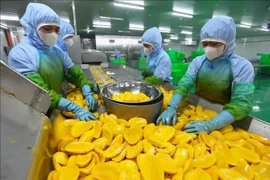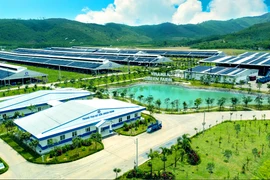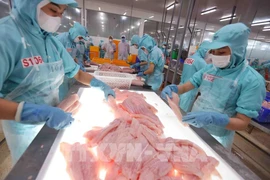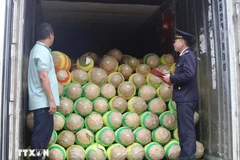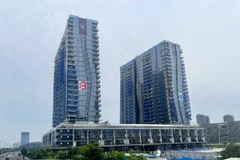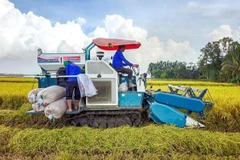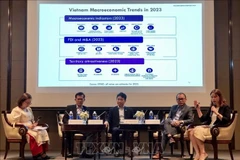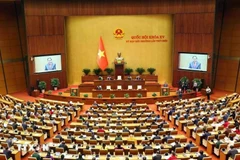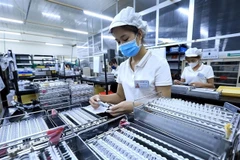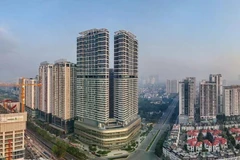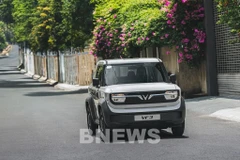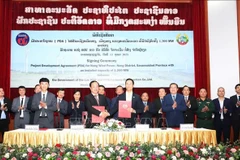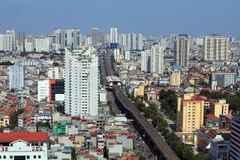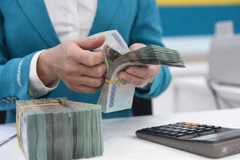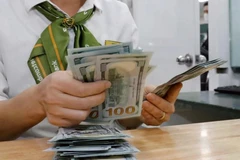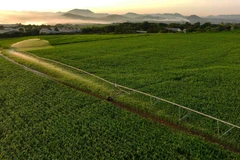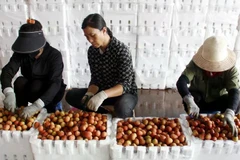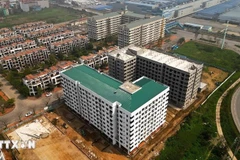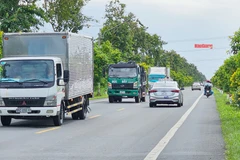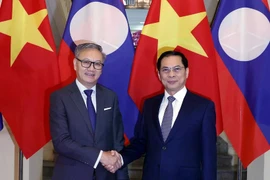Hanoi (VNA) – Vietnam’s agricultural product exports emerged as a shining beacon in the country’s economic landscape, cementing its position as one of the world’s leading agro-forestry-aquatic product exporters.
The agricultural sector wrapped up 2024 with 62.4 billion USD in export turnover, marking an 18.5% increase against 2023, while achieving a record trade surplus of 18.6 billion USD, surging 53.1%. Notable, 11 product categories maintained turnover of more than 1 billion USD each, with seven groups surpassing the 3 billion USD mark.
The results stemmed from the sector's efforts to promote transition to green agriculture, enhance science-tech applications, and meet international standards.
The export of key staples, including rice, coffee, fruits, and seafood, showed remarkable growth. Rice exports reached a historic record of 9 million tonnes, generating over 5.7 billion USD, with the Mekong Delta contributing more than 90%. Fruit and vegetable exports soared to 7.2 billion USD, or 1.6 billion USD higher than the figure in 2023, with durian alone accounting for 3.4 billion USD.
Aquatic product exports also demonstrated robust growth, achieving 10 billion USD in value, up 12.7%, including 4 billion USD from shrimp exports (up 16.7%) and 2 billion USD from tra fish (up 8.9%).
The Mekong Delta currently produces over 65% of the country's fruits and 70% of its aquatic output, reinforcing its central role in the national agricultural supply chain.
However, harmonious strategies, encompassing infrastructure development, trade connection, and renewal of production and export, should be penned to maintain Vietnam’s position in the international market. The country must address such challenges as climate change, saltwater intrusion, landslide, and increasingly stringent import market standards. Additionally, pressures from trade tensions and unpredictable trade policies under US President Donald Trump's administration require enterprises to have flexible market approach strategies and adaptive responses.
While regional rivals like Thailand and Indonesia have invested big in intensive-processing technologies as well as brand and supply chain development, most of Vietnam's agricultural exports remain in raw or preliminary processed forms. Therefore, to enhance competitiveness, Vietnam needs to accelerate processing industry development and establish strong agricultural brands for key products, according to industry experts.
A major challenge for the agricultural sector is its dependence on imported materials and global market price fluctuations. Domestic production costs, from fertilisers and animal feed to transport, are affected by global economic volatility. Furthermore, farmers have suffered “bumper crops, low prices” due to weak links between production and consumption.
The Mekong Delta, the country’s shrimp and tra fish farming powerhouse, should focus on developing internationally certified farming areas, investing in deep processing, enhancing brand promotion and reaching out to new markets while maintaining traditional ones, experts suggested, adding the US and the EU are tightening standards regarding food safety, origin traceability, and environmental protection.
The agricultural sector boasts immense potential to strengthen its global market position. However, sustaining growth requires close coordination between the government, businesses, and farmers in modernising production methods, improving quality, and expanding markets. Support policies should be put in place for agricultural product exporters to access new markets, promote high-tech applications, and develop national brands for key products.
Insiders said proactiveness, innovation and flexible adaptation will be key to helping Vietnamese agricultural products maintain their exports and expand their presence on the global agricultural map./.

